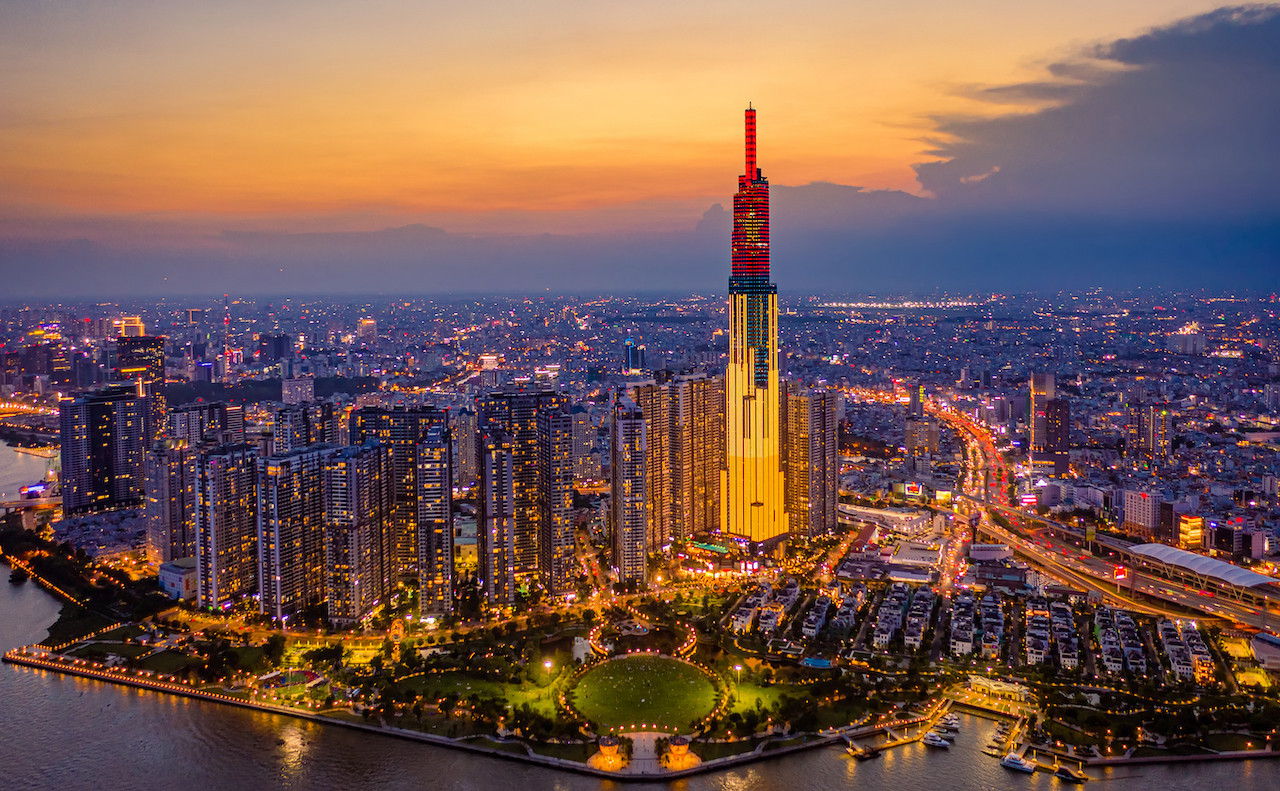For the first time in nearly 30 years, China’s growth, revised downwards on 21 September by the Asian Development Bank, will be lower than the growth of the wider Asian economy. That is, 3.3% compared to 4.3%. The weakness of the Chinese economy is due to a key factor. Firstly, the “zero covid” policy “which has undermined Chinese consumer confidence, created bottlenecks in supply chains and affected other economies”, according to Albert Park, chief economist at the ADB. Another factor is the current political takeover of the country by Xi Jinping, which is holding back foreign investors, who see politics taking precedence over the economy.
These two obstacles are not present in Vietnam. It is a country with a growing economy. The country is not a default choice. It offers undeniable advantages for investors. At least that’s what Hung Nguyen Quang, an economist, and Quynh Le Yen, portfolio manager at Dragon Capital--a Vietnamese asset manager founded in 1994 and which claims $6bn in assets under management--think.
6.5% growth
Growth is currently progressing at a rate of 6.5%, driven by four factors: infrastructure spending, “healthy” macroeconomic policies, the development of a middle class that boosts demand and the attractiveness of the country to foreign investors (foreign direct investment).
The first asset of the country is its population. It has “a young and educated population.” And a population that is experiencing the emergence of a middle class, “a middle class that consumes”. In an economy where 72% of activity is driven by local consumption, this is an asset.
“And even if a middle class is forming, the cost of labour is lower than in China,” Quang said during an interview.
This attracts foreign investors.
The current flow of FDI has benefited from the trade war between China and the United States, which has pushed many large American and Asian companies to set up in Vietnam to avoid trouble. Beijing’s “zero covid” policy has also prompted the relocation of production sites--Samsung is one example. As did the energy crisis that China experienced this summer, with falling water levels leading to power cuts. That is a problem that Vietnam does not face.
Read also
As a result, exports are moving upmarket. While Vietnam still exports a lot of agricultural products, since 2010, the share of technology-related exports has increased fivefold and now exceeds 30%. “Vietnam is becoming an export heavyweight with a steadily rising global market share that has reached 1.6% today.”
Inflation at 2.9%
This growth is not accompanied by price pressures. Inflation remains low: +2.9% over the last 12 months. Quang credited this low level to better control of energy prices than in the West. Having a 42% share of renewable energy in its energy mix--including 30.6% hydroelectricity--helps. As for taxes on oil, they are only 37%. “The zero covid policy has led to a closure of the borders with China and therefore a freeze on exports via the border areas. This has led to a fall in the price of pork and rice.”
Finally, the monetary and fiscal authorities did not use a “whatever it takes” policy during the covid, thus keeping all margins of manoeuvre in case of an economic shock. Currently, the country’s monetary policy does not seek to fight inflation, but “simply” to support the currency.
While Dragon Capital believes that the global inflation crisis is far from over, the Fed’s monetary tightening policy-- which is traditionally unfavourable to emerging markets--will not impact Vietnam, which has superior risk/return prospects within the emerging market asset class.
A $286bn stock market
With the economy doing well, the Vietnamese stock market has not left behind.
First, it is growing. Capitalisation has risen from $30bn in January 2012 to $286bn. “It is a market that is opening up to a retail clientele and is becoming highly digitalised,” Yen said in the interview. It is also a liquid market: “1,600 companies are listed, 54 of which have a capitalisation of between $1bn and $15bn. She acknowledged a certain volatility in this market, due to the more sentimental approach, not necessarily justified from an economic point of view and sometimes leading to strong selling movements. That is a behavioural bias that she hopes will “normalise” with the arrival of international investors.
A minor disadvantage compared to the current entry price: one currently pays 10 times earnings--which makes Vietnam the cheapest country in Asia--with an estimated earnings per share growth of +17.2%.
This article was published for the Paperjam + Delano Finance newsletter, the weekly source for financial news in Luxembourg. . Read the original French version of this interview on the site.
